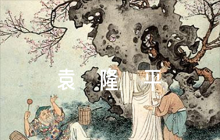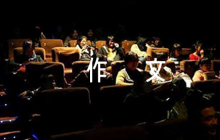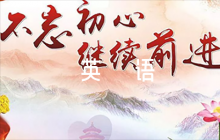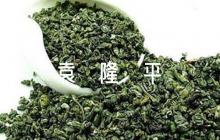【www.chinawenwang.com--英语作文】
高三英语时文阅读,下面是www.39394.com烟花美文网小编整理的if you could change your child's DNA in the future to protect,供大家参考!if you could change your child's DNA in the future to protect

高三英语时文阅读 003
选题人:刘松 审核人:管蓉昭 日期:2015-9-7 教师寄语:Reading makes people wise!
Too polite
ONE of the first words I learned in Chinese, as it would be in any language I learned t
o speak, was thank you, or xiexie. I wanted the people in my new home to think I was polite. However, I soon learned that it wasn?t that simple. Early on, I noticed that people seemed confused by me constantly saying “xiexie”, as if it wasn?t necessary or normal. They reacted in the same way to my use of “qing” and the way I would soften my requests, as in the British way of saying, “Could you pass me the salt?” instead of “Give me the salt!” I was very confused until I realized that I was being too formal and putting a social distance between the person I was talking to and myself. My Chinese friends told me that using “please” actually had the opposite effect of politeness – it served to insert a kind of invisible (看不见的) space that hurt the building-up of intimacy (亲密关系). But this makes things difficult for those with British manners, as saying “please” and “thank you” is something we learn from a very young age. Deborah Fallows described the way a Westerner sees China as a strange mixture of politeness and rudeness in The Atlantic: “A person will pour tea or beer for everyone else before even considering pouring his own. But then another will announce ?Gei wo yan!?, literally (直译地) ?Give me salt!?, with no sign of a please or thank you involved.” A good example of something that confuses foreigners in China is shouting “fuwuyuan!” at the waiter or waitress to get their attention, something that would make everyone else in the restaurant hate you in the UK or US. I now understand why people don?t say “please” or “thank you” in China as often as we do in the UK. However, I?m afraid I still can?t bring myself to shout “fuwuyuan” in a crowded restaurant – my inner polite British person won?t let me! 1. Why did the author learn the word xiexie first when he first learned Chinese? A. He thought it was the easiest word to learn. B. He wanted to be considered polite. C. His Chinese friends advised him to do it. D. He believed that it wouldn?t confuse people. 2. The author learned from his Chinese friends that saying “xiexie” and “qing” _______. A. is not necessary at all in China B. is something people only say to strangers C. is not good for developing a close relationship D. is a way to judge if a person has good manners 3. Which of the following would the author probably agree with? A. Britons and Americans usually have better manners than Chinese people. B. It?s all right to shout “fuwuyuan” to get a server?s attention in a crowded restaurant. C. Chinese people should say “please” or “thank you” as often as British people do. D. Foreigners tend to be confused by Chinese people?s mixture of politeness and rudeness.
Editing humans’ DNA
IF you could change your child?s DNA in the future to protect them against diseases, would you? It could be possible because of technology known as CRISPR-Cas, or just CRISPR. CRISPR involves a piece of RNA, a chemical messenger, designed to work on one part of DNA; it
1
also uses an enzyme (酶) that can take unwanted genes out and put new ones in, according to The Economist. There are other ways of editing DNA, but CRISPR will do it very simply, quickly, and exactly. The uses of CRISPR could mean that therapies ( 疗 法 ) are developed for everything from Alzheimer?s to cancer to HIV. By allowing doctors to put just the right cancer-killing genes into a patient?s immune system, the technology could help greatly. In April scientists in China said they had tried using CRISPR to edit the genomes (基因组) of human embryos. Though the embryos would never turn into humans, this was the first time anyone had ever tried to edit DNA from human beings. With this in mind, the US? National Academy of Sciences plans to discuss questions about CRISPR?s ethics (伦理问题). For example, CRISPR doesn?t work properly yet. As well as cutting the DNA it is looking for, it often cuts other DNA, too. In addition, we currently seem to have too little understanding of what DNA gives people what qualities. There are also moral (道德的) questions around “playing God”. Of course, medicine already stops natural things from happening – for example, it saves people from infections. The opportunities to treat diseases make it hard to say we shouldn?t keep going. A harder question is whether it is ever right to edit human germ-line (种系) cells and make changes that are passed on to children. This is banned (禁止) in 40 countries and restricted (限制) in many others. However, CRISPR means that if genes can be edited out, they can also be edited back in. It may be up to us as a society to decide when and where editing the genome is wrong. Also, according to The Economist, gene editing may mean that parents make choices that are not obviously in the best interests of their children: “Deaf parents may prefer their children to be deaf too; parents might want to make their children more intelligent at all costs.” In the end, more research is still needed to see what we can and can?t do with CRISPR. “It?s still a huge mystery how we work,” Craig Mello, a UMass Medical School biologist and Nobel Prize winner, told The Boston Globe. “We?re just trying to figure out this amazingly complicated thing we call life.” 1. What is the article mainly about? A. How CRISPR was developed by scientists. B. What we can and can?t do with CRISPR. C. The advantages of CRISPR and arguments about its ethics. D. Chinese scientists? experiment of using CRISPR to edit human embryos. 2. It can be concluded from the article that CRISPR ______. A. allows scientists to edit genomes for the first time B. could be helpful in the treatment of cancer and HIV C. is a technology that uses an enzyme to work on RNA and DNA D. has proven to be the most effective way to protect children against diseases 3. According to the article, the technology of CRISPR ______. A. is very safe because it only cuts the DNA it is looking for B. is banned in 42 countries and restricted in many others C. could cause parents to make unwise choices for their children D. could help us discover the link between DNA and the qualities it gives people 4. What is the author?s attitude toward CRISPR? A. Supportive. B. Worried. C. Negative. D. Objective.
本文来源:https://www.chinawenwang.com/zuowen/105641.html
文档为doc格式






 2024-01-03
2024-01-03 








